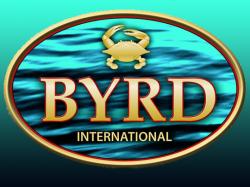NFI Crab Council Announces New Member, Byrd International
December 8, 2015 | 2 min to read

Washington, DC – The Crab Council welcomes Byrd International as the latest member in its industry-led sustainability effort. With the addition of Byrd International, the Crab Council expands its membership to twenty companies, representing a firm majority of the imported blue swimming crab market.
Located on Maryland’s Eastern Shore, Byrd International has supplied high-quality pasteurized crabmeat since 1995. Sourcing from the Philippines, Indonesia and Thailand, Byrd produces its premium quality crab meat at its company owned state-of-the-art facilities.
“At Byrd, we take pride in the consistent quality of our crab meat,” says President Tom Ruark. “We want to guarantee our customers that the choice products we provide today will be available for years to come. We support the Crab Council’s sustainability mission and join them in funding these essential fishery improvement projects.”
Byrd’s inclusion in the Crab Council comes at a pivotal juncture for the importing group. In November, the Crab Council hosted the first Fishery Improvement Project (FIP) conference in Bangkok, Thailand, a two day program that examined stock assessments, fishery governance and scientific perspectives on stock enhancement. Also discussed was the Council’s new Control Document approach, a supply chain monitoring system currently being pilot tested in Indonesia, that restricts the catch of berried and undersized crabs through auditable control points.
“In the last few months, the Crab Council has made great strides in increasing communication and progress sharing between FIPs as well as renewing its focus on harvest and sourcing methods,” said NFI Chairman Brendan Sweeny. “Byrd International’s membership provides a boost of support from a major crab importer. The Crab Council is excited to have Byrd’s backing as we continue to grow our sustainability mission.”
The NFI Crab Council was founded in 2009 and funds Blue Swimming Crab sustainability projects through contributions from participating companies and has received grants from the World Bank and the Walton Family Foundation.
Source: National Fisheries Institute
